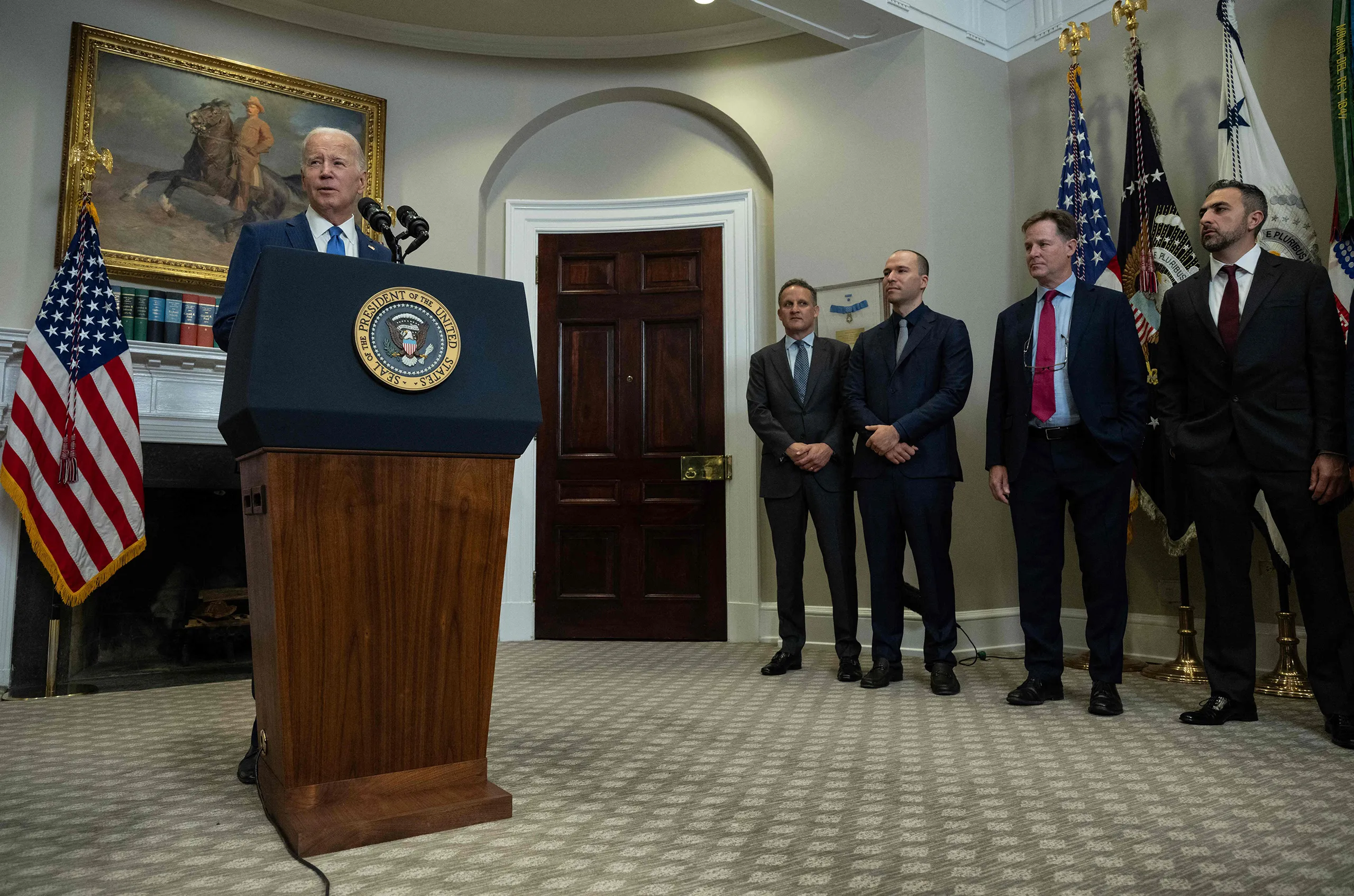By: Zoe Zhang
Seven of the top AI businesses in the United States agreed to handle the risks of the new technologies with new guidelines for trust, security, and safety.
Amazon, Anthropic, Google, Inflection, Meta, Microsoft and OpenAI have agreed to voluntary protections for the advancement of their technology at a meeting with President Biden at the White House on Friday, even as they continue to compete with one another.
One of the executives present at the White House meeting, Microsoft President Brad Smith, stated that his business supports the safeguards.
“By moving quickly, the White House’s commitments create a foundation to help ensure the promise of A.I stays ahead of its risks,” Mr. Smith said.
The companies also agreed to research on privacy issues, provide information sharing about risks with governments, tools for fighting issues like climate change, and take further steps to identify A.I generated content.
Up until now, the seven companies have been competing to develop versions of artificial intelligence that promise new methods to generate text, photos, music and video without human input. However, as artificial intelligence becomes more humanlike, concerns about the spread of misinformation and the “risk of extinction” have been raised.
“We must be cleareyed and vigilant about the threats emerging from emerging technologies that can pose -don’t have to but can pose- to our democracy and our values,” President Biden said at the White House.
“Companies that are developing these emerging technologies have a responsibility to ensure their products are safe,” the Biden administration said in a statement.
The standards described on Friday serve two purposes for the companies: they try to prevent or influence legislative and regulatory actions by self-policing, and they also serve as an indication that they are approaching new technologies with care and foresight.
Several lawmakers have introduced bills that would mandate data privacy protections, establish a federal agency to regulate the A.I. business, and license A.I. corporations to share their technology. However, members of the Congress are not in agreement on the rules.
To improve lawmakers’ understanding, the majority leader and Democrat from New York, Senator Chuck Schumer, started a series of meetings this summer to hear from experts and government representatives on the advantages and drawbacks of artificial intelligence.











